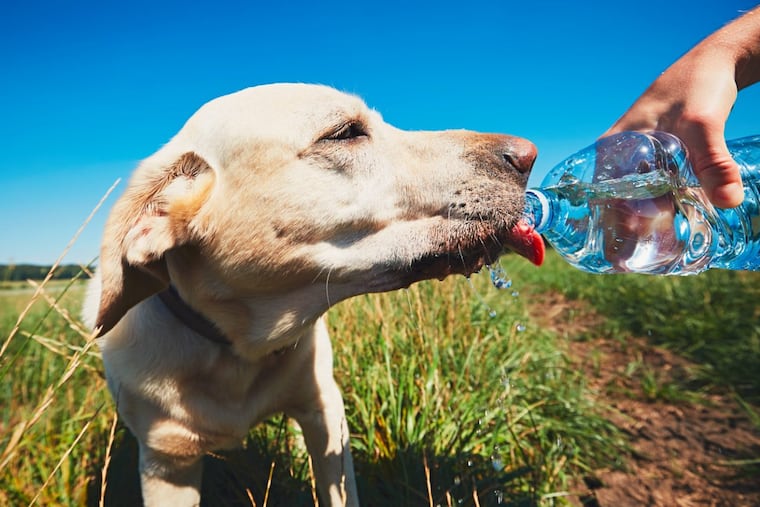10 ways to protect your pet in Philly's record heat
Above all, do not leave your pet alone in a car, say Penn veterinarians. Animals inside a sun-baked vehicle can suffer heat stroke within minutes.

With record heat possible in Philadelphia today, remember to keep an eye on those with four legs.
Above all, do not leave your pet alone in a car, say veterinarians from the University of Pennsylvania School of Veterinary Medicine. Animals inside a sun-baked vehicle can suffer heat stroke within minutes.
Animal safety in the summer is not just about the heat, however.
The school posted a list of ten tips on everything from the importance of staying cool to the dangers of picnic garbage.
Among them:
Make sure your pet's vaccinations are up to date. One canine illness that tends to spread in hot weather is parvovirus, which causes vomiting and diarrhea. It can even be fatal for unvaccinated dogs, Penn's vets say.
Check the animal daily for for ticks. Dogs are far more likely than humans to test positive for the bacteria that cause Lyme disease.
Get your dog tested for heartworm each year, and ask your vet about flea and tick preventative medications.
For cat safety, make sure your windows have sturdy screens in good repair, or else keep them closed. Summertime often brings an increase in the number of cats falling from windows.
Do not exercise your dog in ultra-hot weather, and watch out for hot pavement. Tender footpads!
Make sure dogs and cats have plenty of water to drink, as well as a shady place to nap.
But on the subject of water, remember that not all dogs can swim. Be wary of swimming pools.
At fireworks time, it may help to play with your pet. Penn's vets say: "Follow your dog's cue to help it 'hide' in a favorite room or under a desk, complete with chew toys."
About that picnic garbage: Keep your dog away from corncobs, which can lead to intestinal blockage, and chicken bones, which are a choking hazard.